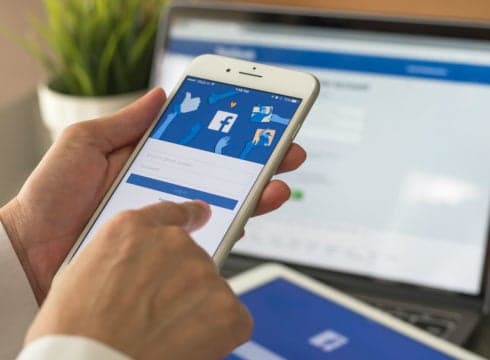India’s Lok Sabha candidates can now share 20 second videos with the voters
Facebook is working with a third-party organisation to collate registered candidate names
On March 20, social media companies have submitted a Voluntary Code of Ethics for the General Election 2019
Inc42 Daily Brief
Stay Ahead With Daily News & Analysis on India’s Tech & Startup Economy
In preparation for the upcoming Lok Sabha elections, social media giant Facebook has launched an exclusive feature for India – ‘Candidate Connect’. This new feature will allow India’s Lok Sabha candidates to record their election manifesto in form of 20 second videos and share it with their constituents.
Facebook will ask a set of four questions to the candidates who can then post their 20 second response videos to each of these queries. The launch of ‘Candidate Connect’ feature is based on Facebook’s research in the country so that people can directly hear views of candidates in their constituencies.
“People can access videos of candidates from other districts as well but it is actually intended to show up on the timeline of voters in a particular constituency,” Samidh Chakrabarti, director of Product Management for Civic Integrity, Facebook, told PTI.
“Only videos by Lok Sabha candidates will be shown in Candidate Connect. Facebook is working with a third-party non-partisan organisation to receive candidate names. The organisation receives information such as candidate lists from the Election Commission,” Chakrabarti added.
2/2 They just announced a new product – exclusive to India and this election, “Candidate connect”. Launching today. More info below pic.twitter.com/ugdY5b2z15
— Matilde Giglio (@MatildeGiglio) March 26, 2019
The social media company will also notify people about their respective polling dates tagged under ‘Share You Voted’. Further to amplify the voting spirit, Chakrabarti said that Facebook will allow voters to upload their voting pictures, which will then be aggregated by the platform in form of a collage and could be shared on respective voter timelines in a video format.
Chakrabarti also said that Facebook has already started removing fake accounts and “bad actors who mislead people” and has brought in transparency in political advertisements.
As the Election Commission of India announced the poll dates of general election for 2019, it had said that the model code of conduct and its pre-certified political advertising rules will apply to the social media as well.
On the direction of Election Commission of India, the social media platforms and Internet and Mobile Association of India (IAMAI) have also submitted a “Voluntary Code of Ethics for the General Election 2019” to Chief Election Commissioner on March 20th.
As per the submission, the companies have agreed to create a high priority dedicated reporting mechanism to the Election Commission and will appointing dedicated teams during the course of General Elections to implement expeditious action on any reported code violations, among other points.
In the past four months, both Facebook and Twitter have also launched a public archive for political advertisements in India, following the strict instructions of the Election Commission.
{{#name}}{{name}}{{/name}}{{^name}}-{{/name}}
{{#description}}{{description}}...{{/description}}{{^description}}-{{/description}}
Note: We at Inc42 take our ethics very seriously. More information about it can be found here.


